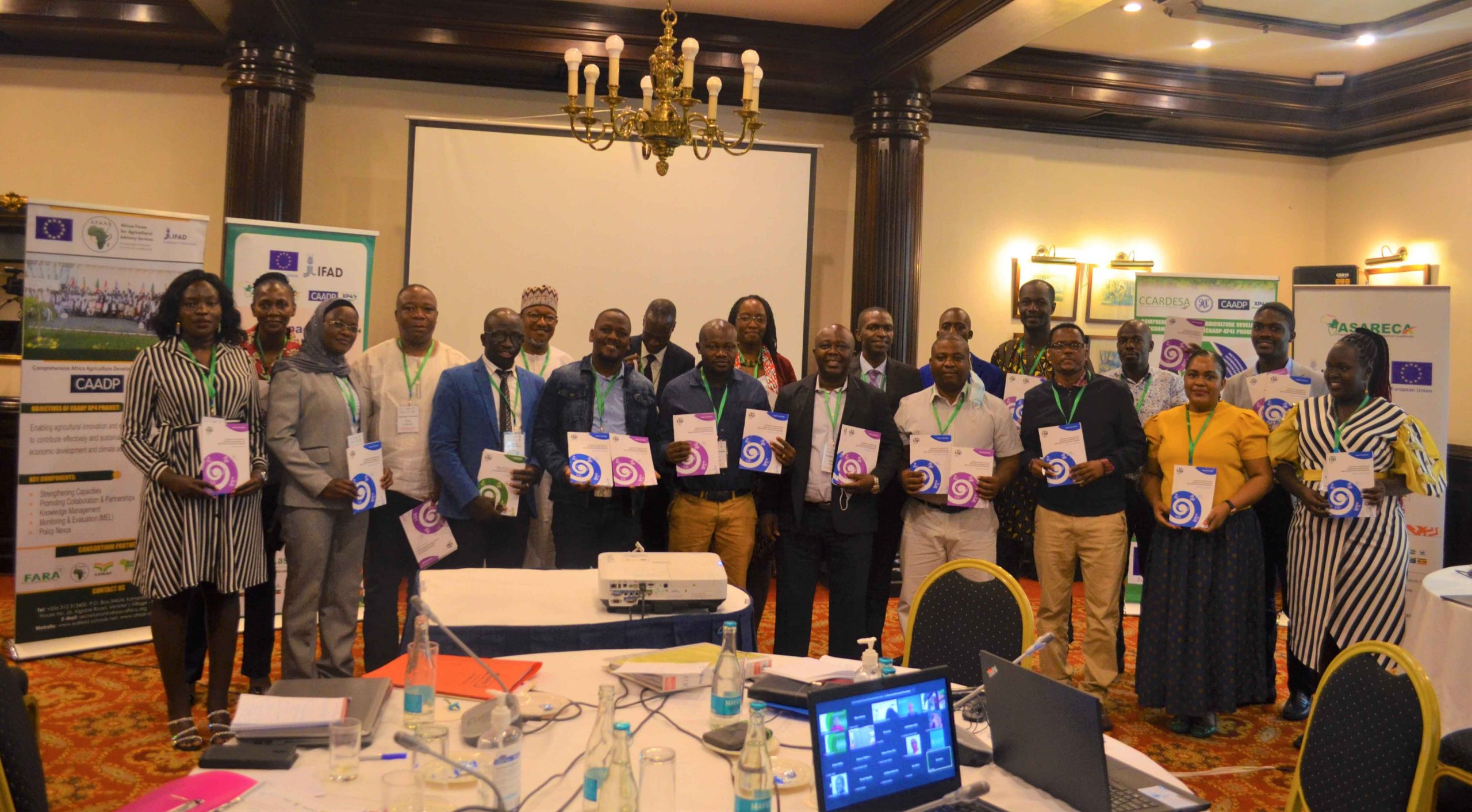CAADP-XP4 institutions receive capacity training to enhance AR4D delivery
“Capacity training is necessary in standardizing methodologies and frameworks for undertaking capacity development and capacity gap assessments. The same methodologies will subsequently be rolled out at national and regional levels.”
By Genevieve Apio
NAIROBI, KENYA: Staff from the five CAADP–XP4 organisations (ASARECA, AFAAS, CCARDESA, CORAF and FARA) have completed a training of trainer’s course on integrating the Tropical Agriculture Platform common Framework (TAP) into African Agricultural Research for Development (AR4D) and extension systems.
The training held in Kenya’s capital, Nairobi, from March 23 to 25, 2022, targeted over 25 participants from 13 regional AR4D and extension organizations in Africa. It was funded by the European Union under the CAADP-XP4 Project through the DeSIRA initiative. Through this initiative, the EU is supporting CAADP-XP4 organizations to enhance their capacity to implement their mandates.
ASARECA Executive Director, Dr. Enock Warinda
The training was administered by the FAO’s Research and Extension Unit for innovation with support from the TAP AIS project: “Developing capacities in Agricultural Innovation systems, scaling up the Tropical Agriculture Platform Framework”. This project is funded by the European Union and is committed to providing technical support to CAADP-XP4 organizations to strengthen their capacity to promote and facilitate agricultural innovation in Africa.
Addressing participants during the opening of the training, ASARECA Executive Director, who is also the Chairman of the CAADP-XP4 consortium, Dr. Enock Warinda, said the training would enhance the capacities of the CAADP-XP4 institutions to meet the DeSIRA objective on Strengthening capacities of African institutions in Agricultural Research for Development.
Training on the TAP approach in progress
“This training is necessary in standardizing methodologies and frameworks for undertaking capacity development and capacity gap assessments,” said Dr. Warinda. “The same methodologies will subsequently be rolled out our partners at national and regional levels.
Among other things, the training is expected facilitate exchange of knowledge, promote peer-to-peer learning and reduce duplication of efforts. The CAADP-XP4 trainers are expected to create a pool of technocrats who will roll out capacity building actions to other beneficiaries.
Participants engage in group work during the training workshop
According to Delgermaaan Chuluunbaatar, Agricultural research officer, FAO, the raining will help CAADP-XP4 organisations to realize the importance of capacity development for innovation, and the benefits of functional capacities in member countries.
Per Rudebjer, the Capacity Development Specialist at FAO noted that Agricultural Innovation is not only about technologies, but also about nurturing public-private partnerships, organizing farmers in cooperatives, managing multi-stakeholder platforms for value chain development, and leveraging financial resources.

